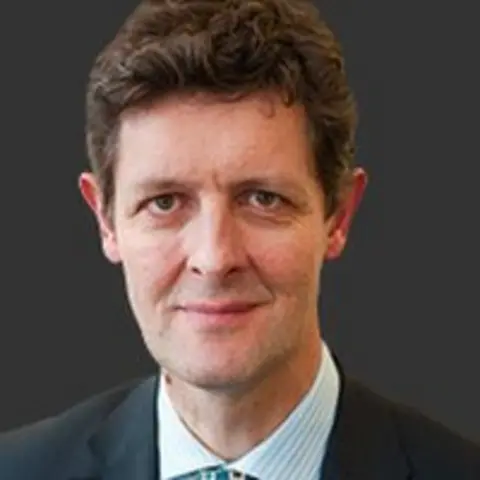Coronavirus: What are UK health officials saying?

 Reuters
ReutersIt is still possible the coronavirus can be contained - but the situation is "extremely concerning" in Iran and the number of cases and deaths in Italy are set to rise sharply, the UK's chief medical adviser has said.
Working closely with his counterparts in the devolved administrations, Prof Chris Whitty, chief medical officer for England, plays a central role in planning the UK's response to Covid-19.
An infectious diseases expert, he played an important role in combating the Ebola threat.
It was encouraging the number of new cases in China was declining, he said, but he worried the official number of reported cases in Iran greatly understated the reality.
Italian disease control systems were "very robust", Prof Whitty said, but people with underlying health conditions should think hard before travelling there.
The official line remains anyone returning from the north of Italy with flu-like symptoms needs to isolate themselves at home and phone NHS 111. Those returning from the designated high-risk areas should self-isolate no matter if they are showing symptoms.
Significant challenges
The UK, meanwhile, is still in the containment phase, with just 13 cases, including four who caught the virus on the UK Diamond Princess cruise liner in Japan.
Public health staff have successfully traced about 700 people with whom these 13 have had close contact.
But they are under no illusion a rapid global spread of the virus turning into a pandemic would raise significant challenges.
And they hope if this happens the peak number of cases in the UK would be in the summer, when:
- elderly people are less vulnerable to respiratory disease
- the virus is likely to spread less rapidly
- the NHS should be under a little less pressure
Planning for hundreds of cases in the UK was advanced, Prof Whitty said, but it was no more than a possibility.
"If there was a major epidemic, there would be substantial pressure on the service," he said.
"But it is actually something we are already planning for, so if this happens we are in a position to get the NHS working as efficiently as possible."
A range of policy responses would be considered, Prof Whitty said, which might include asking whole families to stay at home if one of them tested positive.
The next step, he said, would be to think about closing schools and parts of the public transport network and cancelling events with large crowds
But the cost to the economy and society would have to be weighed up against the health benefits.
"The expectation is not that we will do all these things, the expectation is we will be looking systematically, using the science, at all the building blocks and balancing the effects against costs to society," he said.
Prof Whitty and other system leaders are clearly prepared - but nobody can be sure how resilient the UK's health defences will be if an epidemic develops here.
